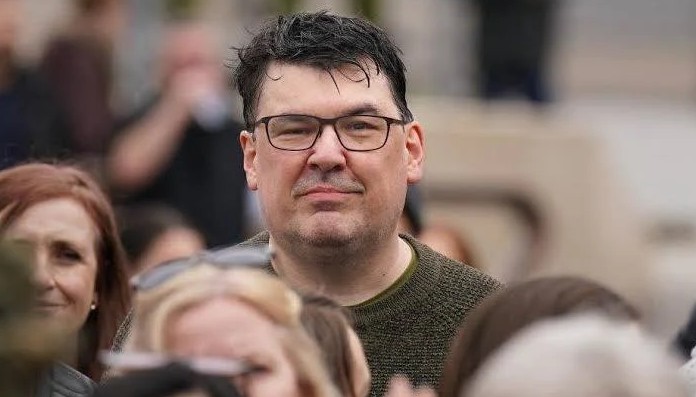Bafta-winning comedy writer Graham Linehan appeared at Westminster Magistrates’ Court today, as he stands trial over allegations of harassment against a transgender activist.
The 57-year-old, best known for co-creating Father Ted, The IT Crowd, and Black Books, is accused of targeting Sophia Brooks online and damaging her mobile phone during an incident in October last year. Linehan has pleaded not guilty to both charges.
What Are the Allegations?
The charges stem from an event that took place at the Battle of Ideas conference in London on 19 October 2024. According to court documents:
- Linehan allegedly posted abusive content directed at Brooks between 11 and 27 October on social media.
- He is also accused of breaking her phone during the conference, a device valued at £369.
The situation escalated further earlier this week when Linehan was arrested at Heathrow Airport over three new posts made on X (formerly Twitter), which police say could be seen as inciting violence related to trans issues.
The Irish writer, known for his sharp humour and outspoken views, has not backed down. Outside the courtroom this morning, Linehan held a placard reading: “There’s no such thing as a ‘transgender child’”
The reverse side of the sign stated: “Keep men out of women’s sports”
In a previous statement made in May, Linehan acknowledged the toll the situation has taken on him, saying: “I’ve lost a great deal, but will not waver in my resolve.”
The case has sparked fierce political reaction, highlighting the growing tension between free speech, gender rights, and law enforcement’s role in moderating online discourse.
Following Linehan’s Heathrow arrest, Labour leader Sir Keir Starmer issued a pointed message to police: “Tackle anti-social behaviour, shoplifting, street crime, as well as reducing serious violent crimes like knife crime and violence against women.”
He reiterated that police priorities must focus on more pressing issues rather than “policing opinions online.”

Reform UK leader Nigel Farage also criticised the arrest, calling it a “waste of police time” and claiming it “undermines free expression.”
Sir Mark Rowley, Commissioner of the Metropolitan Police, has defended his officers but acknowledged the deeper issues: “We’re in an impossible position. We should not be tasked with policing toxic culture wars debates.”
He called on legislators to reexamine the legislation that positions police in the middle of culturally charged conflicts.
Linehan’s court case demonstrates the increasing conflict between free speech and gender identity activism. With politicians, the police department, and the public weighing in, this trial is on track to challenge the limits of legal speech in the age of the internet.
The trial is likely to run on throughout the week. If found guilty, Linehan may be sentenced to a custodial term or fines, depending on the determination of the court.
The case may end up being a landmark in legal precedent for online harassment, especially when it crosses with high-profile activism and contentious public discourse.






